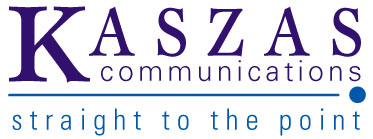I recently worked with a young woman who has an unusual gift for understanding horse behavior. I’ll call her Lisa (not her real name.) She only discovered this talent in the last few years when she took up the hobby of horseback riding.
But her natural talent for reading the character of a horse quickly and accurately was so obvious to the owner of the stables where she rides that she was given a job to work with the “problem” horses there.
This teenage girl struggles to finish high school and has no aptitude for the hard sciences that are pre-requisites for acceptance into veterinary school which her family considers to be the only career option open to her.
She came to me feeling depressed and discouraged about her career prospects.
However, when she talked about her part-time work at the stables, her passion for horse behavior was obvious. Clearly, such work energizes her. Her aptitude for empathizing with horses, for communicating with them in a way that helps change behavior is a very valuable talent in the world of horses.
It got me thinking about the work done by The Gallup Organization over the past decade (http://www.gallup.com). Gallup delivers in-depth insights on public opinion polling, societal issues, education, management, and human
talent. They found that focusing on strengths brings about real business results.
“There’s always a greater return on investment when people focus on strengths – when they focus on what’s right instead of what’s wrong.” Gallup also found that when professionals can do what they do best, their organizations have lower turnover and higher customer satisfaction. These results lead to bottom-line success.
Lisa is at her first career crossroads in life. Should she nurture and develop her unusual gift into a career? If you believe in a God of some sort, you might think God created horses and loves them, and God created Lisa and loves her, and might have put her here to take care of horses. But how on earth do you make a career out of that?
Yes, it might be easier for Lisa to finish school and get a regular job as a teacher, or nurse, or computer programmer, even though she shows no aptitude in these areas. According to conventional reasoning, this lack of aptitude should pose no real hindrance to her career choices because she’s young, she can apply herself, and probably grit her teeth and get through some kind of training program that qualifies her for a good job.
By doing so, she’d be doing what most people do when choosing a career, according to Gallup. It seems that our culture is focused on pinpointing weaknesses and overcoming them. But imagine what life would be like if we
focused more on our strengths and less on what we think we need to do in order to achieve job security.
Gallup suggests that it is much better to use your natural strengths and motivations to excel in a field that will recognize and reward you for what you do naturally and effortlessly is the shortest route to excellence…and our economy rewards excellence of any kind.
Horses are big business in certain parts of North America. And there are many people who make a very good living in that field, people who are not veterinarians. I provided Lisa with a list of resources to research the many different opportunities in the field.
As I mentioned above, she showed a flair for communicating and informing others through explaining. She likes to meet with others to discuss horse behavior. She may want to look at a role requiring these talents.
For example, there may be horse-related professional associations, or industry groups, and administrative organizations that employ Education Officers, Information Officers, Licensing Agents, and other people who have to explain complex issues and matters to members, insurance reps, inspectors, as well as the general public.
Career choices have consequences, and often involve trade-offs. In order to attain career mastery and job security, The Gallup Organization says you will need to understand your unique patterns. You will need to become an expert at finding, describing, applying, practicing and refining your
strengths.
Lisa has a bright future with horses ahead of her (or not), depending on the choices she makes now. It may not be easy for her to find her niche in the world of horses but it certainly is possible.
Gallup explains that individuals have the greatest opportunity for success doing what they do best, rather than focusing on areas where they start from scratch.
“We found that when people report that they have the opportunity to do what they do best, they are more likely to stay with their company.” This doesn’t mean, of course, that professionals should ignore their weaknesses completely. But it does mean that they can bring more value to organizations by learning how to identify and use their strengths.
In order to determine our best jobfit, each of us would benefit from a rigorous and in-depth analysis of stories about times in our lives when we are doing what we enjoy most and doing it well.
In a sense, you need to know if you are suited to “sell the boat” or “build the boat” or “sail the boat” or ³maintain the boat.² Even if you are a “boat builder,” then what kind of a boat builder are you? what is unique about you? what separates you from other boat builders?
I am happy to report that Lisa, who only a few years ago was failing high school, has started on scholarship a Bachelor of Science at a university that has a strong reputation for animal sciences.
“An unexamined life is not worth living,” goes the old saying from Socrates. The passage of time may have dulled the sharp edges of this profound and provocative statement but not it’s significance. Self-knowledge is the key to success. A rigorous and disciplined examination of your life, your goals
and your personal values will reap a huge bounty of riches.








 This picture of a man in a cart trying to pull a horse looks ridiculous, doesn’t it? This person is not going to get far. And yet, this is exactly where many of us end up in our careers because we put the cart in front of the horse.
This picture of a man in a cart trying to pull a horse looks ridiculous, doesn’t it? This person is not going to get far. And yet, this is exactly where many of us end up in our careers because we put the cart in front of the horse.


 Do you think about changing jobs? The power to do so is right under your nose…well, behind your nose actually! Stored in your brain are memories about events and activities you truly enjoyed in life since childhood. Here are some tips for analyzing your life history for key success factors that reveal work that is personally and financially rewarding.
Do you think about changing jobs? The power to do so is right under your nose…well, behind your nose actually! Stored in your brain are memories about events and activities you truly enjoyed in life since childhood. Here are some tips for analyzing your life history for key success factors that reveal work that is personally and financially rewarding.